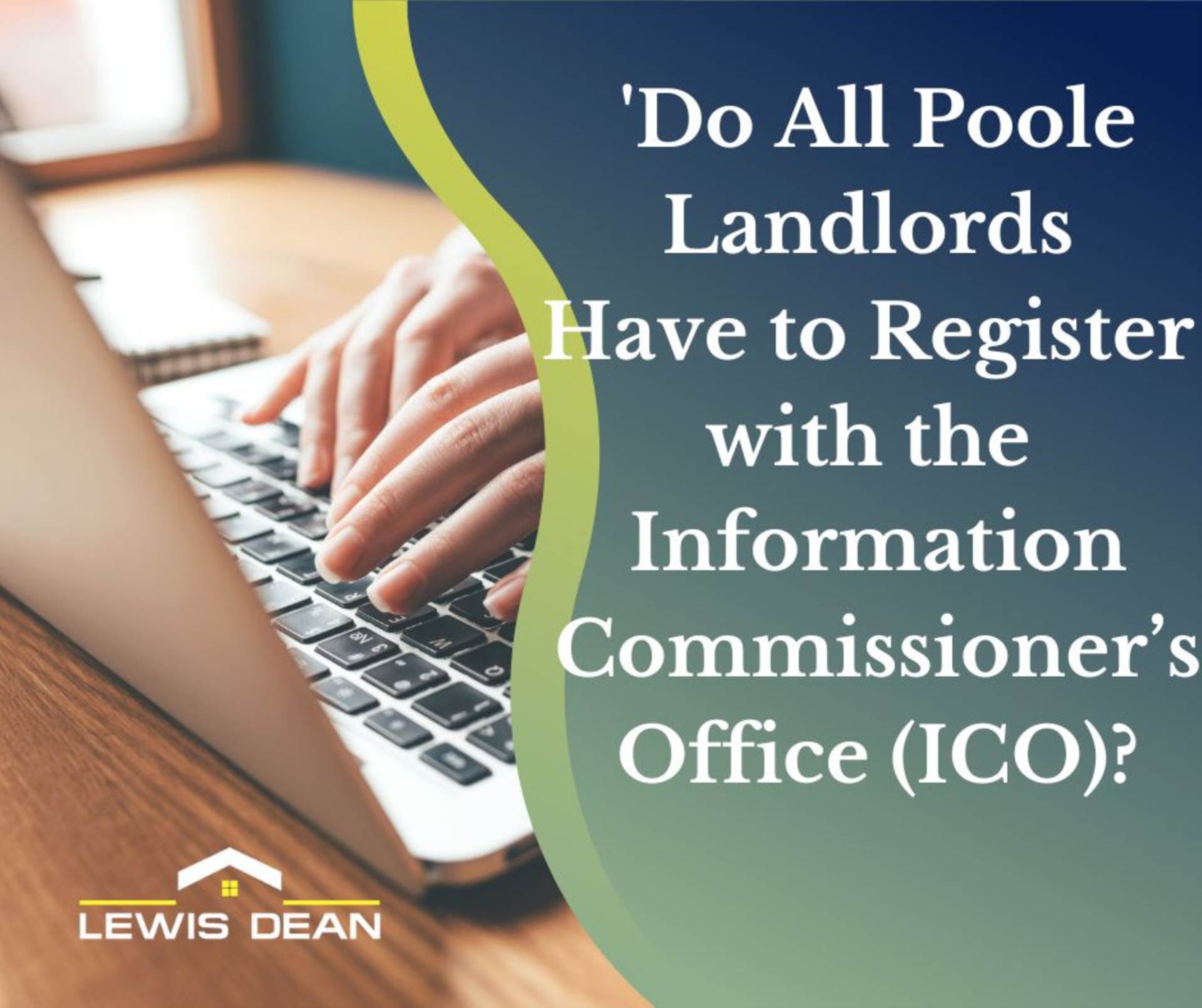
Date Published 22 January 2025
As a landlord, you might have a lot on your plate – from maintaining properties to handling tenant issues. But here's something you might not have thought about: registering with the Information Commissioner's Office (ICO). It's not something all landlords realize they need to do, but it could be an important step to ensure you're staying on the right side of the law. Let's dive into what this is all about.
What is the ICO?
First things first, the ICO is the UK's independent authority that upholds information rights. They make sure that businesses and individuals (yes, including landlords) handle personal data responsibly. The key piece of legislation here is the Data Protection Act 2018, which is based on the EU's GDPR (General Data Protection Regulation). This law governs how personal data should be stored, used, and processed.
Do Poole Landlords Need to Register with the ICO?
Not all landlords are automatically required to register with the ICO, but many do. It depends on whether you are processing personal data for your tenants or other individuals, and how you are doing it.
In simple terms: If you're collecting, storing, or processing personal data, such as names, contact details, payment history, or even sensitive information like medical conditions or employment status, you might need to register.
For example, if you:
-
Keep a database of tenant information
-
Collect rent payments online and store personal details
-
Send marketing emails to potential tenants
-
Share personal details with third parties like letting agents or contractors,
You are processing personal data, and therefore, registration with the ICO is likely required.
When Don't Landlords in Poole Need to Register?
Some landlords don't need to register with the ICO if their data processing activities are minimal or don't involve much personal data. For instance, if you're a small landlord managing just one or two properties and you don't keep detailed records or store personal information outside of basic paperwork, you might not need to register.
There's a key exception called the "personal data exemption". If you're processing personal data solely for personal or household purposes, and not in the course of any commercial activity, you may not need to register. This typically applies to private landlords with very little business structure in place.
Why Should Landlords in Poole Register?
Even if you're not legally required to register, it's often a good idea. Here's why:
Stay Compliant with the Law: The GDPR and Data Protection Act have serious penalties for non-compliance. If you're processing personal data and you haven't registered with the ICO, you could face a fine. The ICO can fine up to £4.4 million or 4% of your annual turnover for breaches, so it's better to be safe than sorry.
Build Trust with Tenants: Being registered shows that you take data protection seriously. This builds trust with your tenants and shows you're committed to keeping their personal information safe.
Get Advice and Support: The ICO provides guidance to organizations (and landlords) on how to manage personal data, so registration gives you access to resources that can help ensure you're following best practices.
How Do You Register with the ICO?
It's pretty easy to register with the ICO, and it's done online. The registration fee depends on your business size – it ranges from £40 to £290 per year. Once you've registered, you'll get a certificate of registration, which can be handy to show tenants or auditors that you're taking data protection seriously. Their website is https://ico.org.uk/
In Conclusion -
Not all landlords need to register with the ICO, but if you're processing personal data in any way, it's likely you'll need to. The good news is, it's an easy process and can help you avoid potential penalties down the line.
So, take a few minutes to think about how you handle tenant data – it might just save you from a lot of hassle in the future!
If you are a Poole landlord and think this blog post may help your other landlord friends please do share this with them.
Sarah Fudge